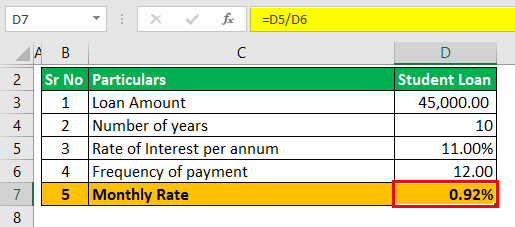
The debt consolidation process allows debtors who are in default to repay their debt to be able to take out a new loan. However, they will still have to pay the new amount. Unlike bankruptcy, however, debtors do not lose their property in the process of debt consolidation. Instead, they can reorganize and lower their monthly debt payments. This does not affect credit scores.
Chapter 13 vs debt consolidation
Two common methods to manage debt are bankruptcy and consolidation. Although both can have their benefits and drawbacks, debt consolidation is often the more financially viable option. Bankruptcy can however be a long-term answer to your financial woes. A bankruptcy will allow you to get rid of most of your debts, and it can also improve your credit score.
An attorney who specializes in bankruptcy will be able help you create a repayment strategy to reduce your debts. Depending on your situation, the repayment period for bankruptcy can be three to five years. You may be able to retain some of you property while still paying your creditors.
Chapter 7 vs debt relief company
Chapter 7 bankruptcy is another option for those seeking debt relief. They have their own advantages and disadvantages. Although a debt settlement can result in a lower ratio of debt to income, bankruptcy can cause damage to your credit score over the long-term. If you decide to implement a debt management strategy, your credit score could be negatively affected. But bankruptcy can also affect your score by as much 125 points.

While both Chapter 7 and debt relief agencies can help you get rid of your debt, they come with different requirements and costs. It's important to weigh these costs when deciding which option to choose.
Credit Score Impact of bankruptcy filings
Your credit score will vary depending on how much debt is eliminated and what balance you have on your credit report. While bankruptcy can reset major credit scores, there are still things you could do to help speed up your recovery. These are some helpful tips for those who have just filed for bankruptcy.
One of bankruptcy's greatest advantages is the possibility to start over. It gives you the chance to start over with a clean slate and learn to budget your money better. You can avoid bankruptcy if you are in control of your finances. If you are disciplined about your money, you can begin a new life and restore your credit score.
Credit report impact of debt consolidation
Consolidating your debt is a great way to reduce your monthly payments and improve credit scores. A debt consolidation plan will only work if you stick to it. People with large credit cards balances find it hard to pay them every month and don't have the money to invest for the future. A debt consolidation program could be the right solution in such situations to help get rid all debt and improve your credit score.
Although debt consolidation has some downsides, it can also have many benefits. It will decrease your credit utilization ratio. This will increase your credit score. Credit scores are calculated from your payment history. Consolidating debt will slowly increase your credit score.

Your credit report will be affected by Chapter 13 vs debt consolidating
You should consider how bankruptcy filings will affect your credit score when considering filing for bankruptcy. Chapter 13 bankruptcy, for example, may be more favorable to your credit report than a debt consolidation plan. This type of bankruptcy allows you to retain some of your assets and has an expiration date of seven years instead of 10 years. In addition, you can file for Chapter 13 as early as two years after your first bankruptcy case is final. Consolidating debt involves consolidating multiple high-interest loans or credit cards into one lower-interest loan.
A chapter 13 bankruptcy plan differs from a debt consolidation plan in that you can still get a mortgage or credit card with a chapter 13. Your interest rate and fees might be higher after filing for Chapter 13 bankruptcy. Chapter 13 is a better option if you own a house. Before you decide which option is right for you, there are some things you need to consider.
FAQ
What is personal financial planning?
Personal finance involves managing your money to meet your goals at work or home. It involves understanding where your money goes, knowing what you can afford, and balancing your needs against your wants.
These skills will allow you to become financially independent. This means that you won't have to rely on others for your financial needs. You no longer have to worry about paying rent or utilities every month.
Not only will it help you to get ahead, but also how to manage your money. It makes you happier. You will feel happier about your finances and be more satisfied with your life.
So, who cares about personal financial matters? Everyone does! Personal finance is one of the most popular topics on the Internet today. Google Trends shows that searches for "personal finances" have increased by 1,600% in the past four years.
People today use their smartphones to track their budgets, compare prices, build wealth, and more. You can find blogs about investing here, as well as videos and podcasts about personal finance.
Bankrate.com estimates that Americans spend on average 4 hours per day viewing TV, listening to music and playing video games, as well reading books and talking with friends. It leaves just two hours each day to do everything else important.
You'll be able take advantage of your time when you understand personal finance.
What are the most profitable side hustles in 2022?
The best way today to make money is to create value in the lives of others. If you do it well, the money will follow.
Even though you may not realise it right now, you have been creating value since the beginning. You sucked your mommy’s breast milk as a baby and she gave life to you. When you learned how to walk, you gave yourself a better place to live.
Giving value to your friends and family will help you make more. In fact, the more you give, the more you'll receive.
Everybody uses value creation every single day, without realizing it. You create value every day, whether you are cooking for your family, driving your children to school, emptying the trash or just paying the bills.
In fact, there are nearly 7 billion people on Earth right now. Each person is creating an amazing amount of value every day. Even if only one hour is spent creating value, you can create $7 million per year.
If you could find ten more ways to make someone's week better, that's $700,000. Imagine that you'd be earning more than you do now working full time.
Let's say that you wanted double that amount. Let's assume you discovered 20 ways to make $200 more per month for someone. You'd not only earn an additional $14.4 million annually but also be incredibly rich.
Every single day, there are millions more opportunities to create value. Selling products, services and ideas is one example.
Even though we spend much of our time focused on jobs, careers, and income streams, these are merely tools that help us accomplish our goals. Helping others achieve theirs is the real goal.
You can get ahead if you focus on creating value. You can get my free guide, "How to Create Value and Get Paid" here.
What is the difference between passive income and active income?
Passive income can be defined as a way to make passive income without any work. Active income requires hard work and effort.
If you are able to create value for somebody else, then that's called active income. Earn money by providing a service or product to someone. This could include selling products online or creating ebooks.
Passive income is great because it allows you to focus on more important things while still making money. However, most people don't like working for themselves. Instead, they decide to focus their energy and time on passive income.
Passive income isn't sustainable forever. You might run out of money if you don't generate passive income in the right time.
If you spend too long trying to make passive income, you run the risk that your efforts will burn out. It's better to get started now than later. If you wait too long to begin building passive income you will likely miss out on potential opportunities to maximize earnings.
There are three types or passive income streams.
-
These include starting a business, owning a franchise or becoming a freelancer. You could also rent the property, such as real-estate, to other people.
-
These investments include stocks and bonds as well as mutual funds and ETFs.
-
Real Estate - this includes rental properties, flipping houses, buying land, and investing in commercial real estate
How much debt is considered excessive?
There is no such thing as too much cash. You will eventually run out money if you spend more than your income. Because savings take time to grow, it is best to limit your spending. Spend less if you're running low on cash.
But how much is too much? While there is no one right answer, the general rule of thumb is to live within 10% your income. This will ensure that you don't go bankrupt even after years of saving.
This means that you shouldn't spend more money than $10,000 a year if your income is $10,000. If you make $20,000, you should' t spend more than $2,000 per month. You shouldn't spend more that $5,000 per month if your monthly income is $50,000
The key here is to pay off debts as quickly as possible. This applies to student loans, credit card bills, and car payments. You'll be able to save more money once these are paid off.
It would be best if you also considered whether or not you want to invest any of your surplus income. If you decide to put your money toward stocks or bonds, you could lose money if the stock market falls. However, if the money is put into savings accounts, it will compound over time.
Let's suppose, for instance, that you put aside $100 every week to save. That would amount to $500 over five years. Over six years, that would amount to $1,000. In eight years, your savings would be close to $3,000 By the time you reach ten years, you'd have nearly $13,000 in savings.
Your savings account will be nearly $40,000 by the end 15 years. Now that's quite impressive. You would earn interest if the same amount had been invested in the stock exchange during the same period. Instead of $40,000 you would now have $57,000.
This is why it is so important to understand how to properly manage your finances. Otherwise, you might wind up with far more money than you planned.
How can a beginner make passive money?
Begin with the basics. Next, learn how you can create value for yourself and then look at ways to make money.
You may even have a few ideas already. If you do, great! If not, you should start to think about how you could add value to others and what you could do to make those thoughts a reality.
Online earning money is easy if you are looking for opportunities that match your interests and skills.
If you are passionate about creating apps and websites, you can find many opportunities to generate revenue while you're sleeping.
But if you're more interested in writing, you might enjoy reviewing products. Or if you're creative, you might consider designing logos or artwork for clients.
Whatever you decide to focus on, make sure you choose something that you enjoy. You'll be more likely to stick with it over the long-term.
Once you've identified a product/service which you would enjoy helping others to buy, you will need to determine how to monetize that product or service.
This can be done in two ways. The first is to charge a flat-rate for your services (like freelancers) and the second is per project (like agencies).
In both cases, once you have set your rates you need to make them known. This includes sharing your rates on social media and emailing your subscribers, as well as posting flyers and other promotional materials.
These three tips will help you increase your chances for success when marketing your business.
-
When marketing, be a professional. You never know who could be reading and evaluating your content.
-
Know your subject matter before you speak. After all, no one likes a fake expert.
-
Emailing everyone in your list is not spam. If someone asks for a recommendation, send it directly to them.
-
Use a good email provider - Gmail and Yahoo Mail are both free and easy to use.
-
Monitor your results: Track how many people open your messages and click links to sign up for your mailing list.
-
How to measure ROI: Measure the number and conversions generated by each campaign.
-
Ask your family and friends for feedback.
-
You can try different tactics to find the best one.
-
Learn and keep growing as a marketer to stay relevant.
How does rich people make passive income from their wealth?
If you're trying to create money online, there are two ways to go about it. One way is to produce great products (or services) for which people love and pay. This is what we call "earning money".
You can also find ways to add value to others, without having to spend your time creating products. This is what we call "passive" or passive income.
Let's say you own an app company. Your job involves developing apps. You decide to give away the apps instead of making them available to users. This business model is great because it does not depend on paying users. Instead, advertising revenue is your only source of income.
To help you pay your bills while you build your business, you may also be able to charge customers monthly.
This is how most successful internet entrepreneurs earn money today. Instead of making things, they focus on creating value for others.
Statistics
- 4 in 5 Americans (80%) say they put off financial decisions, and 35% of those delaying those decisions say it's because they feel overwhelmed at the thought of them. (nerdwallet.com)
- While 39% of Americans say they feel anxious when making financial decisions, according to the survey, 30% feel confident and 17% excited, suggesting it is possible to feel good when navigating your finances. (nerdwallet.com)
- Etsy boasted about 96 million active buyers and grossed over $13.5 billion in merchandise sales in 2021, according to data from Statista. (nerdwallet.com)
- Shares of Six Flags Entertainment Corp. dove 4.7% in premarket trading Thursday, after the theme park operator reported third-quarter profit and r... (marketwatch.com)
- As mortgage rates dip below 7%, ‘millennials should jump at a 6% mortgage like bears grabbing for honey' New homeowners and renters bear the brunt of October inflation — they're cutting back on eating out, entertainment and vacations to beat rising costs (marketwatch.com)
External Links
How To
For cash flow improvement, passive income ideas
It is possible to make money online with no hard work. Instead, there are ways for you to make passive income from home.
Automating your business could be a benefit to an already existing company. Automation can be a great way to save time and increase productivity if you're thinking of starting a new business.
The more automated your business becomes, the more efficient it will become. This allows you to spend more time growing your business than managing it.
Outsourcing tasks is an excellent way to automate them. Outsourcing lets you focus on the most important aspects of your business. By outsourcing a task, you are effectively delegating it to someone else.
This allows you to concentrate on the core aspects of your company while leaving the details to someone else. Outsourcing can make it easier to grow your company because you won’t have to worry too much about the small things.
You can also turn your hobby into an income stream by starting a side business. Using your skills and talents to create a product or service that can be sold online is another way to generate extra cash flow.
If you like writing, why not create articles? Your articles can be published on many websites. These sites allow you to earn additional monthly cash because they pay per article.
It is possible to create videos. Many platforms allow you to upload videos to YouTube or Vimeo. Posting these videos will increase traffic to your social media pages and website.
Stocks and shares are another way to make some money. Investing stocks and shares is similar investment to real estate. However, instead of paying rent, you are paid dividends.
You receive shares as part of your dividend, when you buy shares. The amount of the dividend depends on how much stock you buy.
If your shares are sold later, you can reinvest any profits back into purchasing more shares. You will keep receiving dividends for as long as you live.